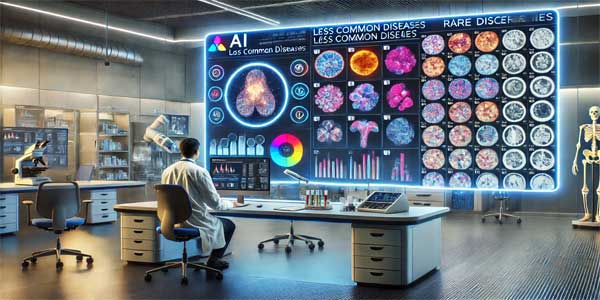With the help of AI, a new breakthrough may have been achieved in medical field which allows for detection of less common dieseases of gastrointestinal tract. AI has already shown the impact it can make in healthcare sector.
The technology is developed by the researchers from LMU, TU Berlin, and Charité which uses imaging data in order to identify the uncommon in diseases of the gastrointestinal tract with great reliability. The study is published in the New England Journal of Medicine.
AI’s Blind Spot: The Challenge of Detecting Rare Diseases in Histopathology
The study highlights that only a few pathlogical dieseases are common amongst the masses and therefore, the detection of the less common dieseases is extremely challenging due to their less and rare occurence. Therefore, a human interpretation is always required for the less common pathologies. This is a major obstacle in the adoption of AI histopathological diagnostics.
However, the noticeable thing about this discovery is that the AI did not required large datasets of the less frequent gastrointestinal problems in order to detect them which is very unlike as AI models often require large number of relevant examples to become trained. The new approach is based on Anomaly Detection.
What is even more surprising about this technology is that the AI was able to detect the less frequent diseases reliably from the sample set of common dieseases. Such a breakthrough indicates that the AI in future will reduce workload on the pathologists.

“We compared various technical approaches and our best model detected with a high degree of reliability a broad range of rarer pathologies of the stomach and colon, including rare primary or metastasizing cancers. To our knowledge, no other published AI tool is capable of doing this,” says Müller.
As of now the human confirmation is required in the identified cases but the reserchers believe that a lot of time can be saved because most of the findings and certain number of dieseases can be easily diagnosed by the AI itself.




